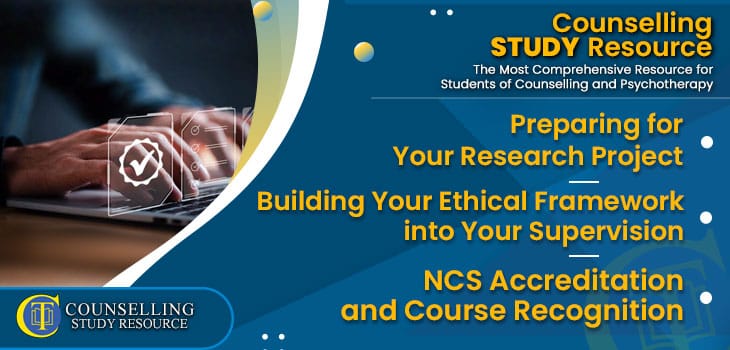See Counselling Skills Used in Real Sessions by Qualified Therapist
Real Sessions – Real Presentations – Real Skills
Gain the competence and confidence to use counselling techniques effectively!

In Episode 260 of the Counselling Tutor Podcast, your hosts Rory Lees-Oakes and Ken Kelly take us through this week’s three topics:
Guide to Small-Scale Research Projects
When it comes to your counselling training, you will be required to do a research project at some point – listen as Rory and Ken go through some things you may want to consider when approaching research:

Real Sessions – Real Presentations – Real Skills
Gain the competence and confidence to use counselling techniques effectively!
It’s important that you understand your ethical framework and by bringing it to supervision and discussing it, you will help yourself and your practice.
Some of the key points of this section include:

On-demand access to a rich lecture library covering theory, skills, and professional development for counselling students—Mapped to the UK awarding body criteria
“The Student Library has been BRILLIANT, I can’t recommend it enough!
It has been a lifeline in helping me prepare for practice and my first clients. If you’re considering it, go-for-it, it’s absolutely worth it!”
Kelly – Graduated and now in practice.
In this week’s ‘Practice Matters’, listen as Rory speaks with Kate Mahoney, Head of Training Services and Professional Standards at the NCS (soon to be NCPS).
The key points of this discussion on NCS accreditation include:
Guide to Small-Scale Research Projects

Get on-demand Certified CPD that is implementable in your practice
